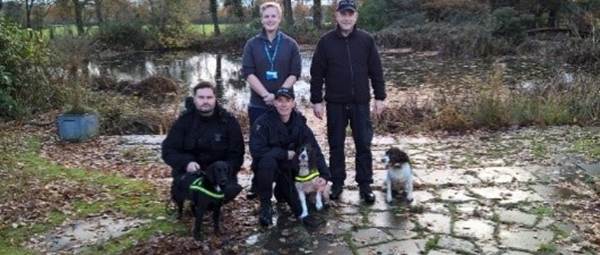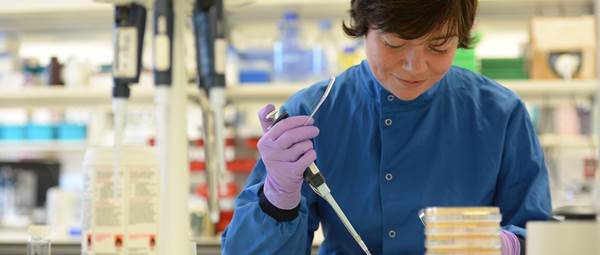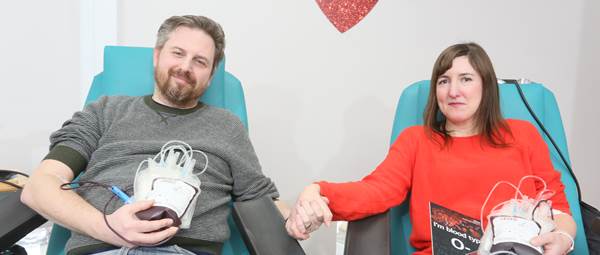How your blood is helping medical research into inflammatory disease
While most donated blood is used clinically, your donation and by-products from the donation process could also be used to save lives in less direct ways, such as understanding medical conditions.
What is Non Clinical Issue?
NHS Blood and Transplant’s core mission is to save and improve lives. While most donated blood and by-products from the donation process are used to treat patients, some donations are unsuitable for clinical use. There are many reasons for this - blood units may be under-weight upon collection or there may have been a quality issue. These blood products can still be useful though.
Alternatively, researchers may be able to use cells from by-products of apheresis collections to make that donation go a little bit further to saving and improving lives.
Through a service we call "Non Clinical Issue" we can send these blood products to approved organisations for a range of approved work, for example diagnostics and developing new medicines and therapies.
Who uses the by-products of apheresis collections?
Use of donated blood and by-products from the donation process for non-clinical work is subject to NHS Blood and Transplant policy and UK regulations.
(Picture: patient samples being prepared for blood grouping in the lab)
Access to these blood products is managed by a dedicated team within NHS Blood and Transplant, including clinical scrutineers, who ensure that each request is from an organisation with a legitimate need for the donation and an intended use that is in line with donor consent, NHS Blood and Transplant policy and regulations (including ethics considerations where required).
Customers come from sectors including research, laboratory quality assurance schemes, medicine development, toxicology and validation. Typical uses include:
- Research into the latest advancements in medical treatments for illnesses and conditions such as COVID-19, cancer, arthritis, diabetes and many more
- Education and training
- Validating treatment and diagnosis services
- Production of blood test kits and test reagents
Research into Inflammatory Disease
Through the Non Clinical Issue supply chain, King’s College London are undertaking life enhancing research using by-products from the blood donation process.
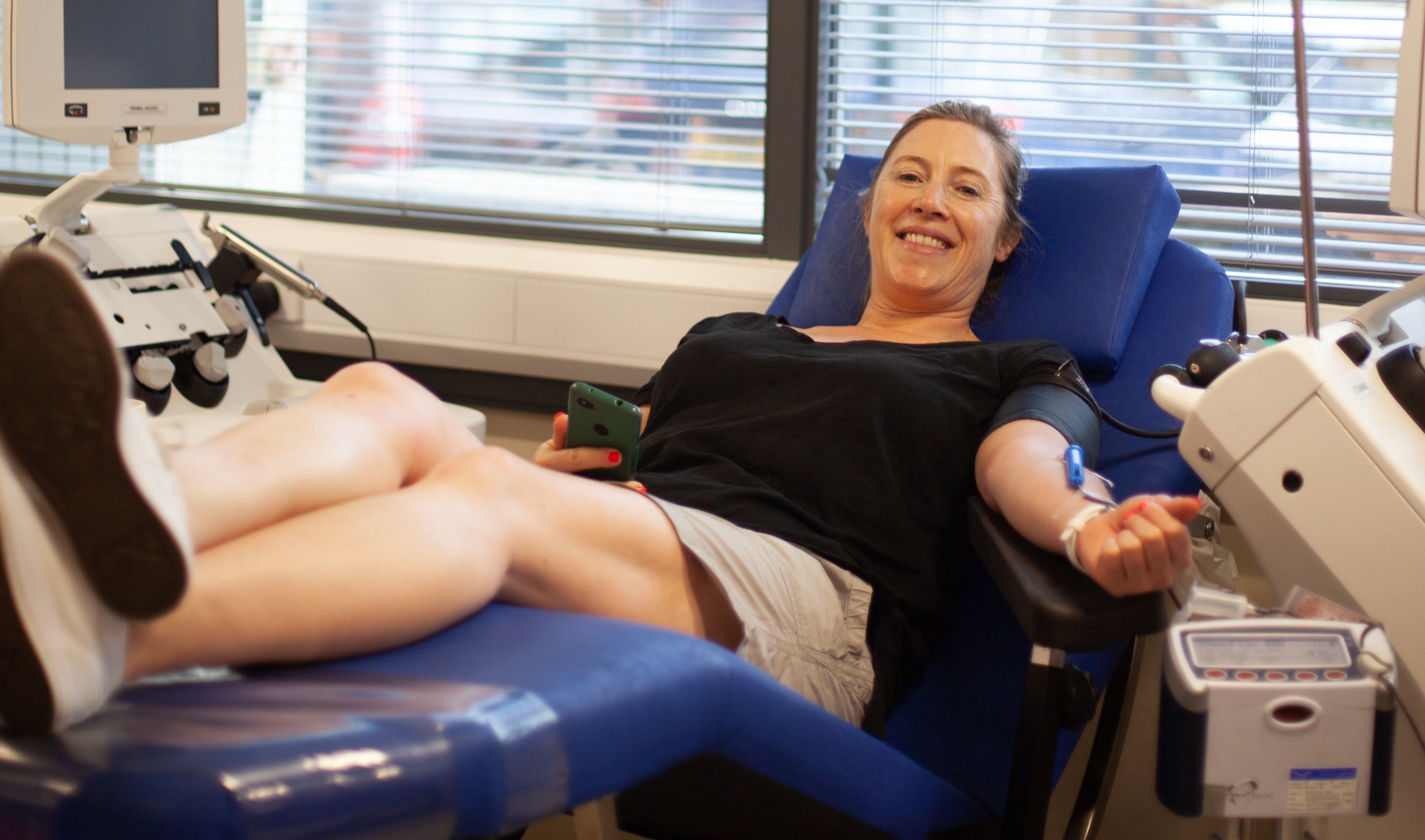 Ankylosing spondylitis (AS) is a long-term condition in which the spine and other areas of the body become inflamed. Other disorders related to AS, termed ‘seronegative spondyloarthropathies’, include psoriatic arthritis, reactive arthritis and arthritis-complicating inflammatory bowel disease (IBD). In total, these diseases affect two to three per cent of European-descent populations, and at least one per cent of Asian populations.
Ankylosing spondylitis (AS) is a long-term condition in which the spine and other areas of the body become inflamed. Other disorders related to AS, termed ‘seronegative spondyloarthropathies’, include psoriatic arthritis, reactive arthritis and arthritis-complicating inflammatory bowel disease (IBD). In total, these diseases affect two to three per cent of European-descent populations, and at least one per cent of Asian populations.
(Picture: By-products from the blood donation process are used for medical research)
It is not known exactly what causes AS but there may be a particular gene that makes someone more likely to develop it. AS can run in families and the gene linked to the condition can be passed down. Not everyone who has the gene will develop the condition, so it is not caused by the gene alone, but it does contribute to it. The condition is likely to be triggered by environmental factors.
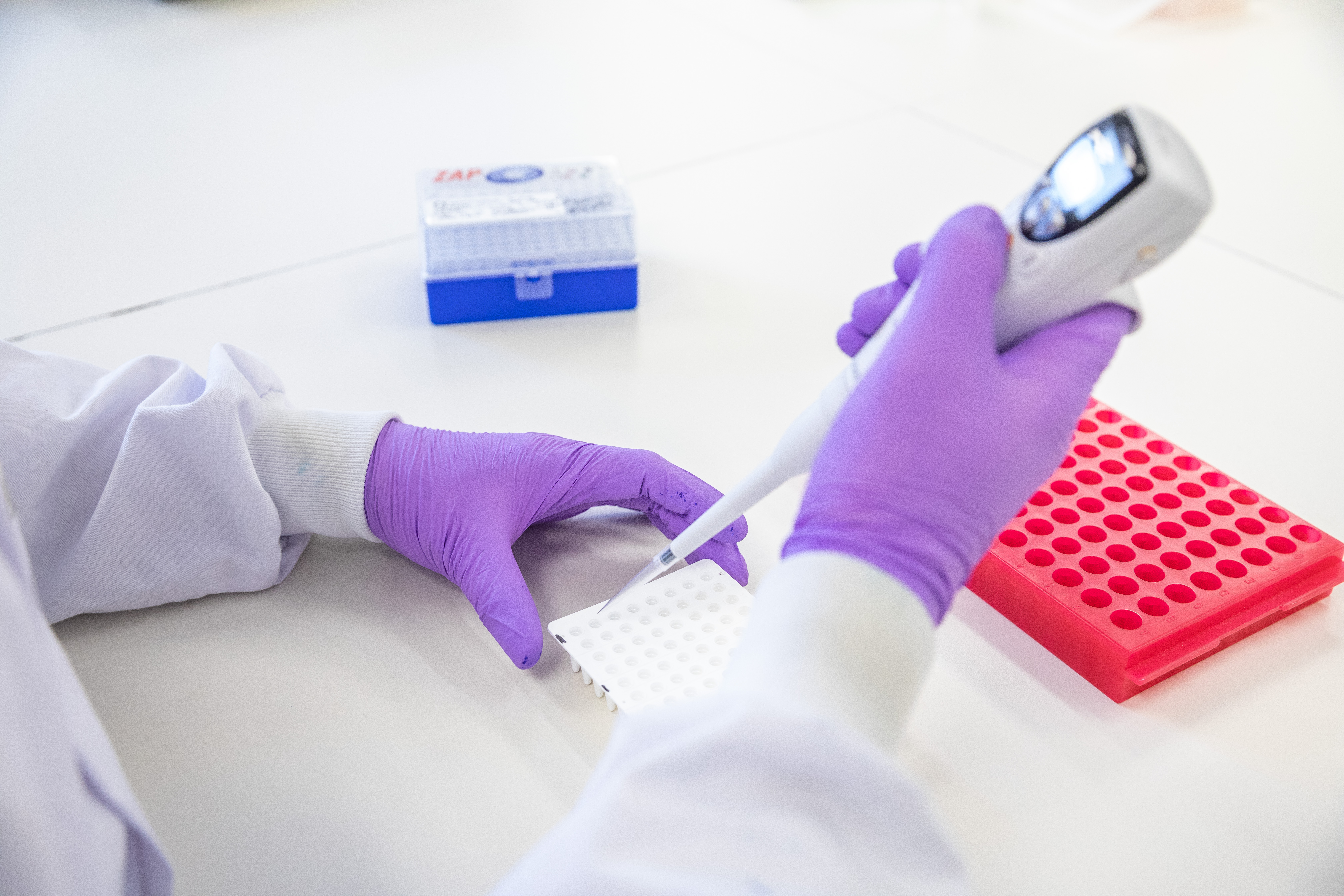 It's thought that because the disease results from abnormal activities of the immune cells, genetic risk variants may play a role in the regulation of the immune system.
It's thought that because the disease results from abnormal activities of the immune cells, genetic risk variants may play a role in the regulation of the immune system.
(Picture: Biomedical scientist performing genotyping on patient samples)
But their function is mostly unknown, hindering the development of better treatments. The recent King’s College study, with the help of blood products supplied by NHS Blood and Transplant, aims to discover the effect of these genetic variants by measuring the proteins that they might be affecting in immune cells.
These studies will help to refine the identification of potential biomarkers of AS and determine their role and the potential mechanisms involved in the process that leads to AS. These hypotheses will then be tested with patients’ samples and correlated with genotype variants influencing the disease risk and function of these markers and related pathways.
Future articles will explain other ways your donations continue to save and improve lives in addition to direct clinical use!

